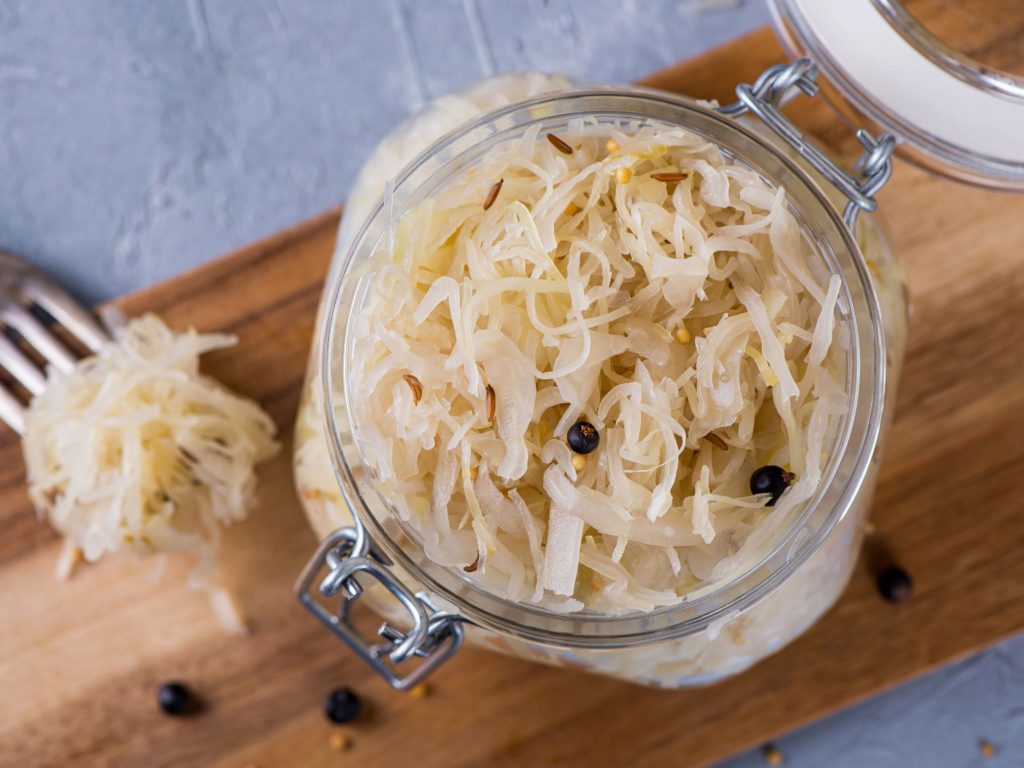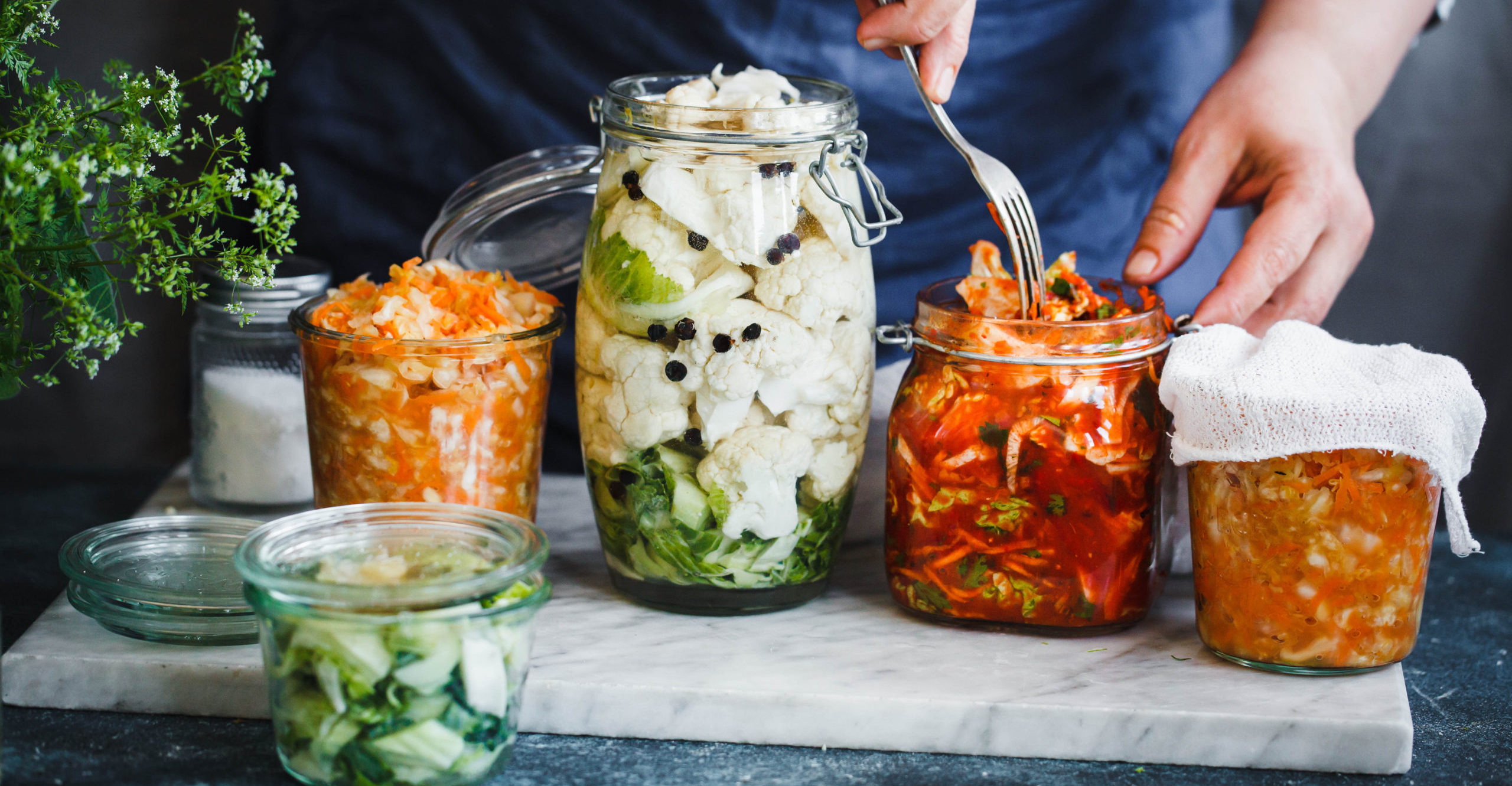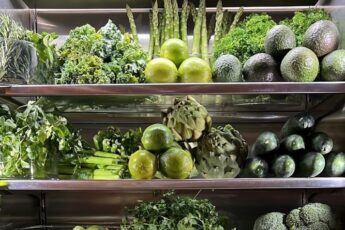Fermentation is an ancient process that our ancestors used to preserve food before fridges existed but now it’s becoming more popular than ever as research reveals the incredible health benefits fermented foods can reap from these simple homemade foods even to become healing foods powerful for many reasons that Food Scientist, Registered Nutritionist and Founder of Nourishme Organics, Kriben Govender has shared with us all things fermented food and its benefits for gut health.
Scientific research has discovered that fermented foods are rich in natural vitamins, nutrients, prebiotics and probiotics which all help to promote a healthy gut. Plus, with 80% of our immune system located in the gut, fermented foods are the perfect natural immune boosters.
What are good fermented foods into your diet?
You may have heard of sourdough or kombucha but there are so many types of fermented foods to choose from, each with their own unique taste and nutritional benefits including sauerkraut, yogurt, kefir, miso, kimchi and tempeh. They are all super easy to make at home and are the the most beneficial foods for digestive health.
Fermented Food List
1. Kefir
2. Sauerkraut
3. Tempeh
4. Miso
5. Kimchi
Below Kriben Govender is sharing a list with his favourite fermented foods:
1. Kefir
Milk Kefir (pronounced “keh-feer”) is a natural anti-inflammatory and immune booster, which has over three times the amount of natural probiotics that yogurt has, and is also filled with vitamin B and vitamin K, which are vital to a healthy immune system.
Scientific research has also shown six major health benefits from drinking traditional milk kefir including a healthier heart and cardiovascular system, decreased inflammation and faster healing, improved digestion and better gut health, faster metabolism, mood enhancement, antimicrobial activity, lower blood sugar and blood pressure. It really is nutritious, tasty, and chock-full of “good” bacteria to boost your health.
One of the best things about traditional milk kefir is that it’s simple and inexpensive to make at home, and home-made kefir actually retains significantly more of its health benefits than any store-bought kefir says Kriben.
Milk Kefir at home is the best way to get the most out of this fermented beverage according to Kriben, all you need to create your own is kefir grains, a glass container, the milk of your choice (ideally organic, grass-fed, and full-fat), room temperature that’s between 18 – 28 degrees Celsius, and 24 hours to ferment it. Once it’s been left for 24 hours, you can then experiment with other ingredients during a short second fermentation of 1 – 4 hours. Try starting with a small piece of lemon or orange peel or a couple of fresh berries.
2. Sauerkraut
Fermented cabbage, otherwise known as Sauerkraut, is loaded with Vitamin C and can be easily made at home with minimal effort and utensils. Sauerkraut not only is magic healing food but also provides us with a natural boost of vitamin C, it is also packed full of probiotics and prebiotics including L. plantarum, a probiotic found in fermented vegetables which a recent study revealed has an antiviral effect against Influenza A.
Making fresh homemade sauerkraut ensures that it’s naturally packed with all of these vital nutrients, so you can reap rewards. Home-made versions are also eco-friendlier and more economical than store-bought versions.
Here’s Kriben DIY Sauerkraut simple recipe: Shred up cabbage, add salt, mix and massage into it, add caraway seeds, then pack the cabbage into a glass jar, cover it with a secured cloth and then leave it to ferment for 3 – 10 days for a small batch. The cabbage creates liquid when you massage it and make sure to keep the cabbage covered in this juice whilst it’s fermenting. This process is done using your hands so it’s imperative that your hands and all utensils used, are disinfected and clean.
Eight years ago, I was crippled with anxiety and depression, I was overweight, and I was lacking energy and vibrancy. My psychiatrist told me that antidepressants were my only treatment option but as a Food Scientist I started to research alternatives. I discovered the incredible impact of gut health on our overall health and the magic of fermented foods, particularly kefir, which completely transformed my life. So I am excited to be able to share with you how fermented foods and focusing on your gut health can really help improve your overall health and wellbeing.

How to introduce fermented food into your diet?
Try This Fresh & Fruity Kefir Probiotic Popsicles Recipe:
Ingredients:
- 200mL of homemade kefir
- 1 tbsp organic honey
- 1/2 cup of fresh berries (or fruit of your choice)
- 1 tsp of vanilla powder
Method:
Mix your homemade kefir with honey, before stirring in fruit and vanilla. Tip – if you’d prefer smoother, creamier popsicles, blend the fruit first! Fill your ice lolly moulds with the mixture and then freeze. Once your popsicles have solidified, they’re ready to enjoy.
To learn more about fermented foods and gut health visit nourishmeorganics.com.au or listen to Kriben’s podcast, Gut Health Gurus podcast.
**Advisory Statement
All fermented foods may contain trace amounts of alcohol. If fermented foods are being prepared for children, breastfeeding mothers, or pregnant women please seek medical advice from a trained medical practitioner before consuming these products.
To keep alcohol as low as possible, make sure that:
– First ferment was conducted with lid slightly open
– The first ferment is sour to taste
– Use no more than 25ml fruit juice per 250 ml
– Second ferment for 48 hours max, chill and consume within 24 hours (you will not get as much fizz but alcohol will be as low as possible)







